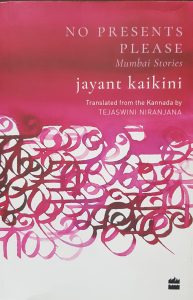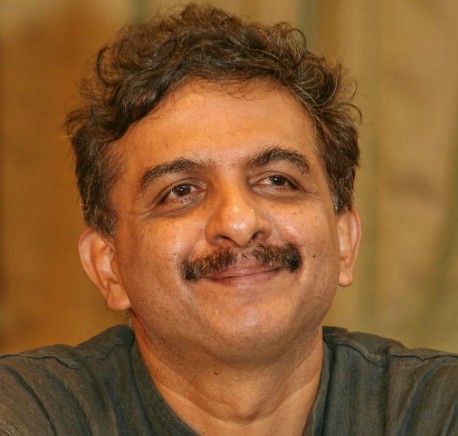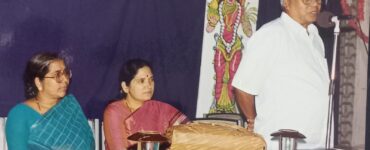A neighbour steps on to the lawn with his tottering grandchild as I sit in my garden in one of Bangalore’s gated communities, savouring the winter sun and reading a Jayant Kaikini short story in English, beautifully translated by Tejaswini Niranjana and brought out by Harper Collins.
The man must be in his 60s. His one-year-old grandson happens to be my good friend, recognizing me with a toothless smile whenever we bump into each other on our evening walks. The grandfather has always found our interactions amusing and fascinating as the boy’s behavior has a particular ring of friendship. The grandfather and I often chat about north Karnataka, Telangana, and the Telugu I speak.
That morning, carefully guiding his toddler through sharpish slabs under feet and the lawn, the grandfather asked me what I was reading and I showed him the book. “Oh Kaikini. He is from the Karwar region,” he exulted. “You know, only people from rich landscapes can write good poetry. That whole Karwar region has great writers,” he paused: “Their use of words and language… it all comes from the region: the surroundings, water…everything.” I was genuinely surprised. I never saw in him anything beyond the grandfathership of my tiny, gregarious friend. In what turned out to be one of those experiences akin to a rice grain that carried a Taj Mahal on it, I got a snapshot of the region, Kaikini and some themes. It was a brief conversation that gave me a good sense of his knowledge laced with humour. He left as the little boy lisped for a further walk.
Kaikini’s stories are perhaps as much about what my neighbor has enlightened me about as they are about an uncanny counterculture of human desire to denounce roots. There is a lament about the inevitability of distancing oneself from the homogeneity of known culture and language, their conditioning, in a need to embrace something new. A new culture, its language, a new society, its medley of multiple smells and tastes are necessary for a gentle assault on the senses. You don’t want to miss that rare vignette of life, that endearing character in Mumbai, and not in Karwar.
Kaikini builds a razor sharp view of human desire, the way it springs from robust imagination of frail people caught in an unflattering reality. The starkness of the contrast is observed sardonically and presented with a glint of sweet-sour knowingness. His view of the world seeks to build bridges between decorum, a noble aspiration of the people of small means, and a raging desire to make sense of the unconnectable dots, which glide like hot air balloons somewhere up in the mind. In City without Mirrors and A Truckful of Chrysanthemums the desires are subliminal, intensely experienced. In the latter, the pain of being aware of one’s own diminishing health through vomit and loss of breath has no direct connection to the chrysanthemums that one expects to see in the story. It is a state of mind that the reader perhaps hopes for the character to reach.
City Without Mirrors is carved out of a granite boulder of a city. Every chipped part is as important as the one that remains in the carving. It makes you almost cry, and perhaps look for those fallen bits.
Best stories are those that present more of the missing chips than what you carry as a whole experience.
They are like the missing teeth of my one-year-old friend. He is no less an experience of life than the full portrait of any other experience that the sun can illuminate on this earth.
Read Jayant Kaikini, either in Kannada or in English, to savour a few perfectly framed obscurities of life, human desire and its flailing.
*









Plain brilliant. As achingly beautiful as the experience of reading his stories. It was almost as if your response has taken on characteristics of his stories: tender, understated, sensitive to the inconspicuous. No review I know of in mainstream press was this intimate and alert.
Thank you :)– Kiran
Ms Kiranmayi ‘s style is highly imaginative and poetic like JB Priestley’s. Her critique is bound to pull the reader to Jayant Kaikini. Criticism, elevated to the high level of creative writing with poetic insight, is indeed rare nowadays. Kiranmayi is a rare exception.
Ms Kiranmayi has written a very poetic critique on Jayant Kaikini’s short stories. Her style is refreshingly free from routine critical jargon and her English prose has poetic , picturesque and colourful quality like that of JB Priestly. One feels that such creative criticism certainly pulls readers to the original author Jayant Kaikini by stirring their imagination and literary curiosity.